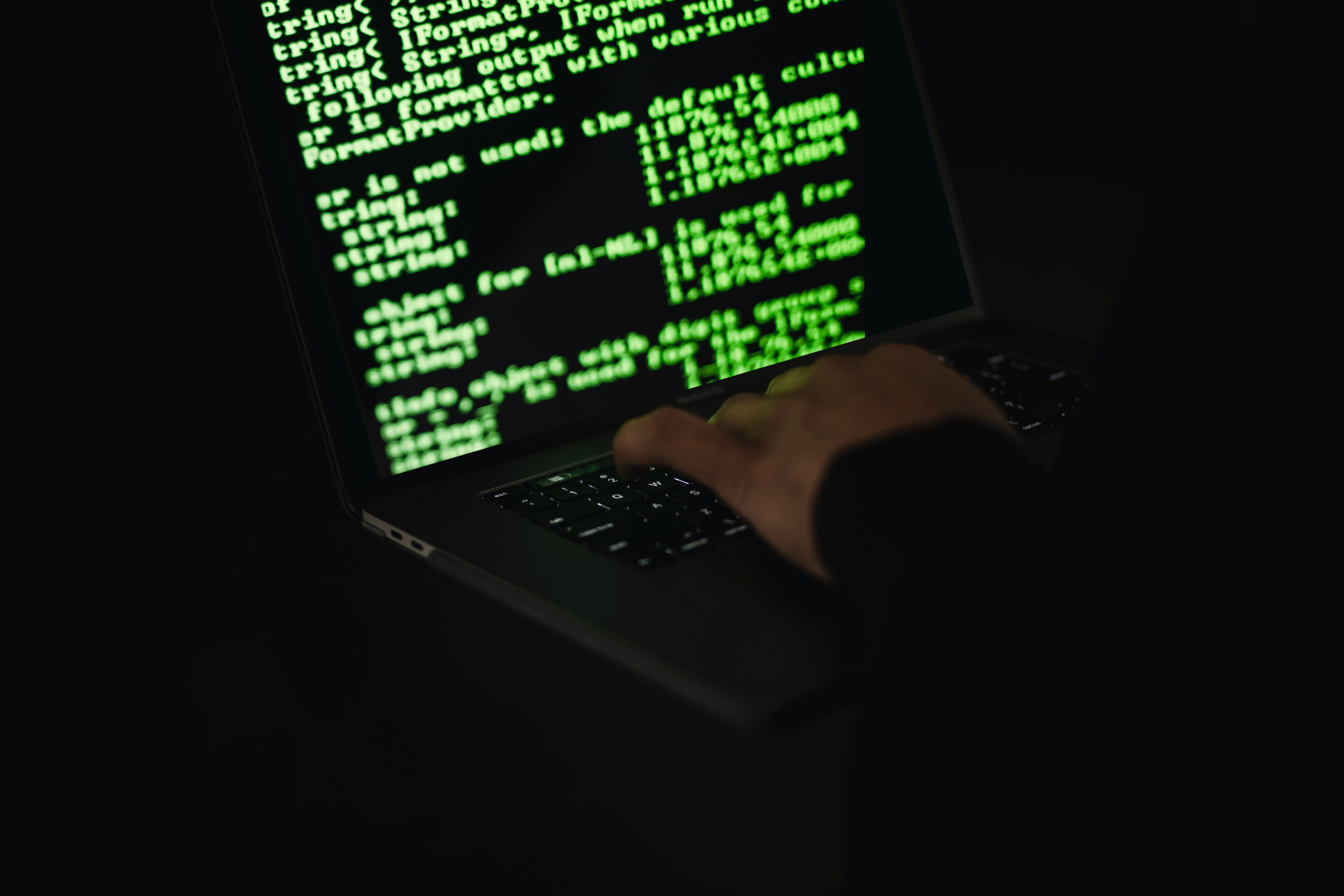
PROF Hein Venter
Prof. Hein S. Venter graduated at the Rand Afrikaans University (RAU) in 1996, majoring in Computer Science and Informatics. He successfully obtained a B.Sc (Hons.) degree in Computer Science in 1997. In 1999 he received the M.Sc degree (Cum Laude) in Computer Science. Since February 2000 he has been a junior lecturer in the Department of Computer Science at the RAU and was promoted to full lecturer in February 2002. Since February 2003 he has been a senior lecturer in the Department of Computer Science at the University of Pretoria.
His research interests are in computer and Internet security, which include network security, Intrusion detection, information privacy, and digital forensics.
Prof. Venter has published in a number of accredited international subject journals. A number of acclaimed international and national, Computer and Information Security conferences, were attended where he presented his research papers. He is also a member of the organising committee of the Information Security for South Africa (ISSA) national conference and the South African Institute of Computer Scientists and Information Technologists (SAICSIT) national conference.
Prof. Venter is also involved in consultation work from time to time, involving setting up and creating information and computer security courses for industry, as well as security consultation work.
Currently Supervising:
-> HONOURS: 1 student(s)
-> MASTERS: 4 student(s)
-> DOCTORATE: 3 student(s)
Past Supervision:
-> HONOURS: 2 student(s)
-> MASTERS: 1 student(s)
-> DOCTORATE: 2 student(s)

PROF Martin Olivier
Martin Olivier is a professor at the Department of Computer Science in the School of Information Technology at the University of Pretoria. In addition to normal teaching and research duties, he is the research coordinator of the School of Information Technology.
His current research interests include privacy and digital forensics as well as database, application and system security. Research Activities are carried out in the Information and Computer Security Architecture Research Group at the University of Pretoria.
He is author or co-author of more than 80 academic publications. More than a dozen students have completed their Masters or Doctoral studies under his guidance. He is a member of the editorial board of Data & Knowledge Engineering. He is also a member of IFIP working group 11.3 on database and application security, IFIP working group 11.9 on digital forensics, the ACM, the Computer Society of South Africa and the Suid-Afrikaanse Akademie vir Wetenskap en Kuns (South African Academy for Science and Art).
Prof Olivier holds a BSc degree in Mathematical Sciences, BSc (Honours), MSc and PhD degrees in Computer Science, a BA degree in Humanities and a BA (Honours) degree in Philosophy.
Currently Supervising:
-> HONOURS: 0 student(s)
-> MASTERS: 0 student(s)
-> DOCTORATE: 0 student(s)
Past Supervision:
-> HONOURS: 0 student(s)
-> MASTERS: 0 student(s)
-> DOCTORATE: 0 student(s)
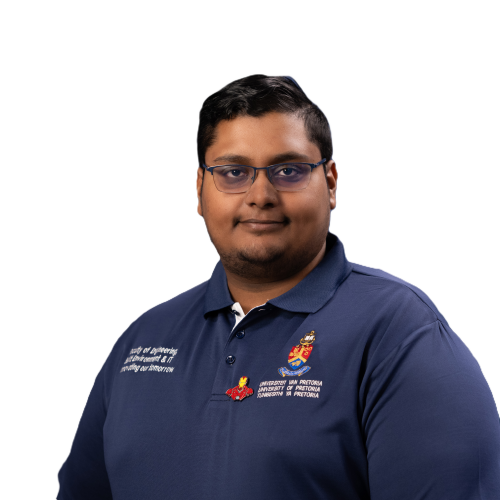
DR Avinash Singh
Dr Avinash Singh is an upcoming researcher in the Digital Forensic space, focusing on Ransomware Forensics and Digital Forensic Readiness.
He has obtained all his degrees from the University of Pretoria in Computer Science. He was employed as an Assistant Lecturer since July 2017, and a Lecturer from January 2020 at the Department of Computer Science, University of Pretoria.
Dr Singh has published in international conferences and accredited international journals. His research interests encompass ransomware detection, ransomware prevention and ransomware recovery.
Furthermore, Dr Singh is always keen on helping and assisting in bringing out the best in everyone.
Research Topic Areas:
- Digital Forensic Readiness
- Ransomware Forensics
- Intelligent Digital Forensics
- Domain Name Abuse
- Phishing
- Email Spam Detection
- IoT
- SDN
- Reinforcement Learning
Currently Supervising:
-> HONOURS: 10 student(s)
-> MASTERS: 4 student(s)
-> DOCTORATE: 0 student(s)
Past Supervision:
-> HONOURS: 15 student(s)
-> MASTERS: 0 student(s)
-> DOCTORATE: 0 student(s)
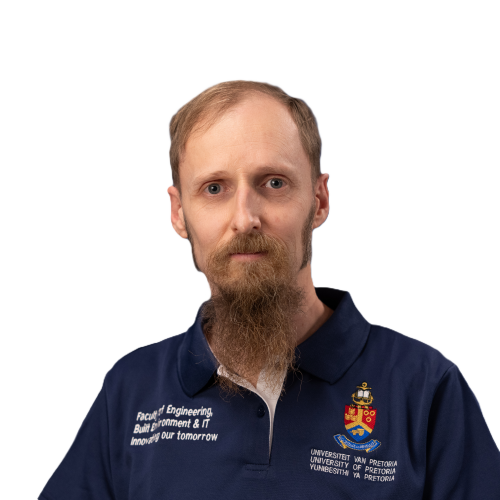
MR Werner Hauger
Mr Werner Hauger started his studies at the University of Pretoria in South Africa in 1995. He graduated in 1997, majoring in Computer Systems. He obtained a B.Sc (Hons.) degree in Computer Science with distinction the following year.
After that, he worked for many years in software development. He started as a software developer and has held positions such as Solutions Architect and Software Development Manager in his software development career. He has designed, built and maintained software systems in telecommunication, insurance and medical insurance.
He returned to academia to continue studying and obtained his M.Sc. in Computer Science with distinction in 2019. His dissertation is titled "Forensic attribution challenges during forensic examinations of databases". He is currently busy with his PhD degree in Computer Science. His interests lie in computer and information security with a specific focus on digital forensics and information privacy.
Currently Supervising:
-> HONOURS: 0 student(s)
-> MASTERS: 0 student(s)
-> DOCTORATE: 0 student(s)
Past Supervision:
-> HONOURS: 0 student(s)
-> MASTERS: 0 student(s)
-> DOCTORATE: 0 student(s)
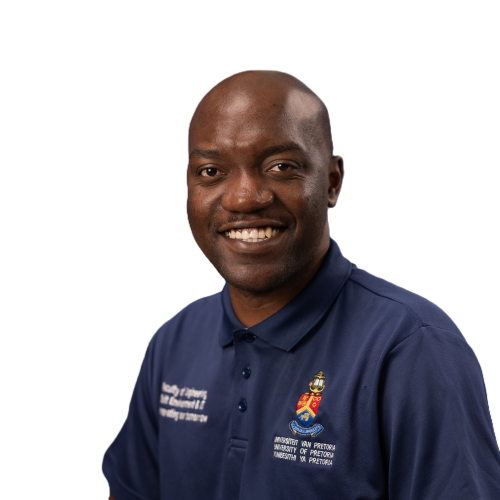
MR Sheunesu Makura
Sheunesu Makura is a lecturer at the Department of Computer Science within the Faculty of Engineering, Built Environment and Information Technology at the University of Pretoria. He graduated with a Bachelor of Science degree at the University of Fort Hare in 2012, majoring in Computer Science and Mathematical Statistics.
He subsequently graduated with a BSc Hons in Computer Science and Masters in Information Technology degrees obtained at the University of Pretoria in 2014 and 2019 respectively. He is currently busy with his PhD in Computer Science also at the University of Pretoria.
Mr Makura has worked in industry as a Digital Forensic Investigator specialising in Mobile Forensics and Social Media Forensics. He has published in international conferences and accredited international journals. His current research interests include the following:
- Digital Forensic Readiness
- Cloud Forensics
- Mobile Forensics
- Computer Information and Security
- Cybersecurity
Currently Supervising:
-> HONOURS: 9 student(s)
-> MASTERS: 1 student(s)
-> DOCTORATE: 0 student(s)
Past Supervision:
-> HONOURS: 18 student(s)
-> MASTERS: 0 student(s)
-> DOCTORATE: 0 student(s)

PROF Jan Ellof
Jan Eloff obtained a PhD (Computer Science) from the former Rand Afrikaans University (RAU) in Johannesburg, South Africa in 1985. He subsequently gained practical experience by working as a management consultant for Arthur Anderson and as an IT manager for Sasol. Currently he advises industry in the field of information security. He was appointed as a full professor in Computer Science from 1988 to September 2002 at the Rand Afrikaans University. In October 2002 he was appointed Head of the Department and full professor in Computer Science in the Department of Computer Science at the University of Pretoria (UP) (http://www.cs.up.ac.za). He also chaired UP.s School of Information Technology from 2005 to 2008. In 2008 he received the Leading Minds in Research Award from the University of Pretoria for his research contributions. He received an outstanding academic achievement award from the University of Pretoria for the period 2006 to 2011. He is currently appointed as the Research Director at SAP Meraka UTD focusing on creating new software platforms for emerging economies.
At the University of Pretoria he is currently appointed as an Extraordinary Professor in Computer Science, and he is one of the founders of the Information and Computer Security Architectures (ICSA) research laboratory, which is part of the Department of Computer Science. His research group also participates successfully in the Centre of Excellence of which Telkom is one of the main sponsors. In 2004 he launched a community service project in the UP Department of Computer Science aimed at transferring IT-knowledge to learners in rural and poor communities. From 2004 to 2006 he was the President of the South African Institute of Computer Scientists and Information Technologists (SAICSIT). He is a member of the Council for Natural Scientists of South Africa and a full member of the Computer Society of South Africa.
He has published extensively in a wide spectrum of accredited international subject journals. Many acclaimed international and national conferences were organised and conducted under his leadership. He delivered papers at leading information security conferences on an international level.
He is an evaluated researcher from The National Research Foundation (NRF), South Africa. He is a member of the Council for Natural Scientists of South Africa.
He is an annually invited guest professor at the International Institute of Management in Telecommunications, University of Fribourg, Switzerland.
He advises to industry on various information security projects.
Currently Supervising:
-> HONOURS: 0 student(s)
-> MASTERS: 0 student(s)
-> DOCTORATE: 0 student(s)
Past Supervision:
-> HONOURS: 0 student(s)
-> MASTERS: 0 student(s)
-> DOCTORATE: 0 student(s)
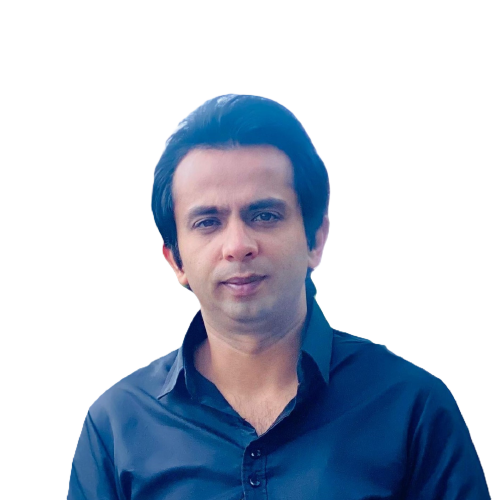
DR Muhammad Umer Mushtaq
Dr. Muhammad Umer Mushtaq is currently a Postdoctoral fellow at the University of Pretoria, where he continues his research on energy-harvesting wireless sensor networks. He is working in the Digital Forensics Lab under the supervision of world-renowned Professor Hein Venter, a leader in the field of cybersecurity and digital forensics.
Dr. Mushtaq completed his PhD in Control Science and Engineering at Southwest University of Science and Technology, China, in June 2024. His PhD research focused on the optimization of energy-efficient communication protocols for wireless sensor networks, with applications in various domains such as smart cities, environmental monitoring, and IoT systems.
Dr. Mushtaq is the first Pakistani scholar to be awarded a postdoctoral fellowship at the University of Pretoria, one of the world’s top 350 universities. This achievement is a proud milestone in his academic career and reflects his commitment to advancing cutting-edge research in his field.
Dr. Mushtaq’s research is centred on developing novel techniques to enhance the performance and reliability of energy-harvesting wireless sensor networks, integrating machine learning and formal verification methods to improve system security and performance. His research interests span wireless communication, energy efficiency, cybersecurity, and IoT technologies.
Currently Supervising:
-> HONOURS: 2 student(s)
-> MASTERS: 0 student(s)
-> DOCTORATE: 0 student(s)
Past Supervision:
-> HONOURS: 0 student(s)
-> MASTERS: 0 student(s)
-> DOCTORATE: 0 student(s)












